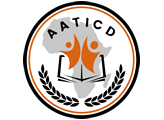Why Attend
Logistics management is an essential function governing the flow of goods through a supply chain. This course, delivered in association with the UK-based Chartered Institute of Logistics and Transport (CILT), brings you up to date with the latest logistics models and practices. The course’s main focus is on the optimization of transport, warehouse and inventory management activities. In addition, it covers the Supply Chain Operations Reference (SCOR) framework for managing logistics key performance indicators.
Course Methodology
In this training course we will use exercises as well as regional and international case studies. Participants will frequently work in pairs with one another and in larger teams.
Course Objectives
By the end of the course, participants will be able to:
- Recognize modern supply chain and logistics trends as a basis for sustainable performance
- Employ qualitative and quantitative material forecasting techniques for a streamlined logistical operation
- Develop go-to-market strategies for different product categories based on associated supply risk and financial impact of each
- Describe role of transportation in logistics and identify opportunities for operational improvement
- Identify the role of warehousing, focusing on operational throughput and performance optimization
- Apply Supply Chain Operations Reference (SCOR) framework to manage strategic, operational and tactical facets of logistics
Target Audience
Logistics professionals at all levels of the organization. In addition, this course is ideal for those seeking to complement their supply chain and logistics experience with the latest theoretical knowledge in the field in preparation for assuming a higher position at their organization.
Target Competencies
- Supply chain management
- Enhancing customer value
- Warehouse design
- Warehouse operation
- Inventory management
- Transportation management
Location:
South AfricaTraining Dates:
Each course starts every Monday of each week. Please book your training on a date that is a Monday.Course Duration:
Unit Standard:
NQF Level:
Number of Credits:
Course Fees
Note: Please fill in the online application form on the left or bottom if this page to receive a quotation with detailed pricing from AATICD.How to Apply:
To Apply Simply Fill in the Online Enquiries / Applications form on the Right Sidebar or Bottom of this website https://www.aaticd.co.zaNB:
When filling the online application form; please take note of your desired Training Month, Duration in Weeks and Training Session. This will give us the exact dates you will be attending your classes.Also note that Tuition Fees must be paid upfront on or before training start date. This is to ensure that all resources are made availabe for you before you start. You will not be allowed into training if fees are not paid and verified.
Also note that Tuition Fees Cancellations must be made 14 business working days before the starting date of training. This will allow us to do a 50% refund of the total amount paid. If cancellations are made thereafter note that no refund will be made to delegates.
Tuition Fees include teas and lunch as well as either a laptop or tablet which a delegate will take home free of charge.
Tuition Fee DOES NOT include Accommodation, Dinners and other Extra Curricular Activities or Incidentals. Delegates are expected to fund this on their own. AATICD will not be held accountable for any incidents to delegates.
In-House Trainings are also available for 3 or more delegates for any duration. Please consult with our Administration for such In-House training bookings.
Course Outline
- Logistics trends and practices
- Logistics overview
- Logistics, supply chain and the organization
- Strategic, tactical and operational elements of logistics
- Sustainable logistics
- Concepts in logistics
- 3rd Party Logistics (3PL)
- 4th Party Logistics (4PL)
- Transport management
- Objectives of transport management
- Costs associated with transport management
- Transportation modes and types
- Efficient and effective transportation
- Matching the strategic service level
- Drawing transportation routes
- Managing cubing of cargo
- Considerations for international transportation
- Working with Incoterms 2010
- Warehousing operations
- Warehousing network design
- Configuration of warehousing space
- Value adding activities
- Stockpiling, spot stocking and assortments
- Cross docking, break bulking and consolidation
- Mixing, postponement and assembly-to-order
- Warehouse activity profiling
- Warehousing cost calculation
- Sustainable warehousing practices
- Inventory management
- Materials management scope
- Objectives of materials management
- Inventory types and classification
- Materials management challenges
- Material replenishment strategies
- Make-to-stock
- Make-to-order
- Assemble-to-order
- Design-to-order
- Design for the supply chain
- Design for the environment
- Logistics and performance management
- The SCOR framework
- Identifying high level SCOR metrics
- Customizing low level SCOR metrics
- Managing targets
- Initiative for performance improvement




